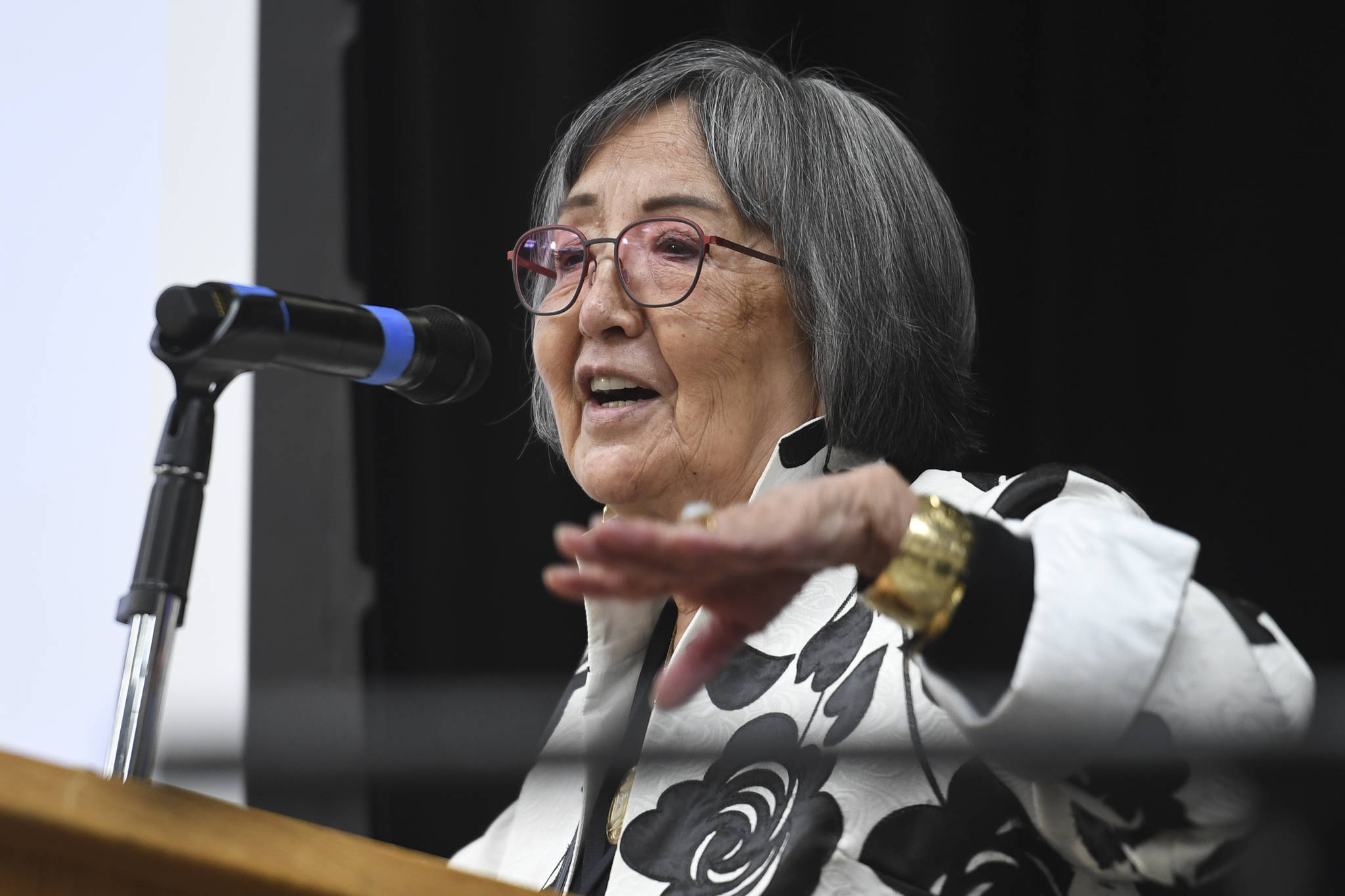In Rosita Worl’s estimation, the time is coming to ditch or at least retool the requirements that tie being an Alaska Native Corporation shareholder to a specific percentage of Native heritage.
The president for Sealaska Heritage Institute, a nonprofit for the preservation and perpetuation of Alaska Native culture and art, delivered a lecture Friday morning during the Sharing Our Knowledge Conference that focused on blood quantum and possible consequences of policies tied to a standard of 1/4 Alaska Native blood.
“Could this ultimately lead to our cultural extinction?” Worl asked. “In the long term, in my humble opinion, I would have to answer yes.”
She was specifically speaking of the current Sealaska Corporation shareholder eligibility requirements that state shareholder descendants born after 1971 must be 1/4 Native in order to become shareholders.
The 1/4 distinction isn’t an arbitrary figure nor is it an isolated standard.
It matches the definition of Native in the Alaska Native Claims Settlement Act. ANCSA, which was enacted in 1971, established regional Alaska Native corporations, such as Sealaska Corp.
“That was the standard that was adopted when Sealaska shareholders voted to include descendants (in June 2007),” said Jaeleen Kookesh, vice president for policy and legal affairs for Sealaska Corp., in a phone interview.”It stuck with the existing definition in ANCSA, which is 1/4 Alaska Native, so that’s what we use.”
Kookesh said there are Sealaska shareholders who are less than 1/4 Native, but those shareholders were gifted stock and are descendants of shareholders.
[Saturday Night Lights: Major aurora activity predicted this weekend]
The 1/4 blood quantum threshold is also a common cutoff for enrollment into many Native American tribes or to receive treaty or federal benefits, including exemption from the Marine Mammal Protection Act.
Worl said since corporate institutions protect Native land ownership and studies indicate more and more shareholder descendants are less than 1/4 Native, she expects there will be increasing pressure from shareholders for a change to blood quantum requirements.
“It’s starting to gain a little bit more traction because we have more and more shareholders who are having children outside our Alaska Native bloodlines,” Kookesh said. “It hasn’t been brought up to a vote again at Sealaska, but it’s certainly a topic we’re keeping an eye on.”
However, a recent survey showed widespread support for keeping things as they are, Kookesh said.
She said a shareholder survey from December 2018 showed 2/3 of Sealaska shareholders were opposed to changing the blood quantum requirement.
More lenient requirements could mean more shareholders, which would mean thinner slices of the distribution pie for individuals. In 2018, Sealaska’s total distribution was nearly $40 million, according to Sealaska.
Despite the survey results, Kookesh said changing blood quantum requirements is something she said Sealaska will continue to consider, and she expects it to be an ongoing concern in Alaska and the rest of the U.S.
[New technology brings old hat back]
Worl’s speech touched some alternatives to the 1/4 requirement that could be adopted.
One idea was to potentially adopt a less stringent 1/8 blood quantum requirement.
“The 1/8 blood quantum may become problematic in the near future, or actually it may already be here,” Worl said.
Other possibilities raised were requiring someone to be a lineal descendant of an original Sealaska shareholder without any blood quantum requirement, or requiring that a a shareholder be regarded as an Alaska Native by a Native Village or Native group.
Worl said the latter idea would be “difficult to operationalize.”
“I don’t know why Congress got focused in on a quarter blood quantum, but that’s what they did, and it’s unfortunate that we have to struggle now with this dilemma with how we define ourselves because of how Congress defined us at one point in time,” Kookesh said.
• Contact reporter Ben Hohenstatt at (907)523-2243 or bhohenstatt@juneauempire.com. Follow him on Twitter at @BenHohenstatt.

